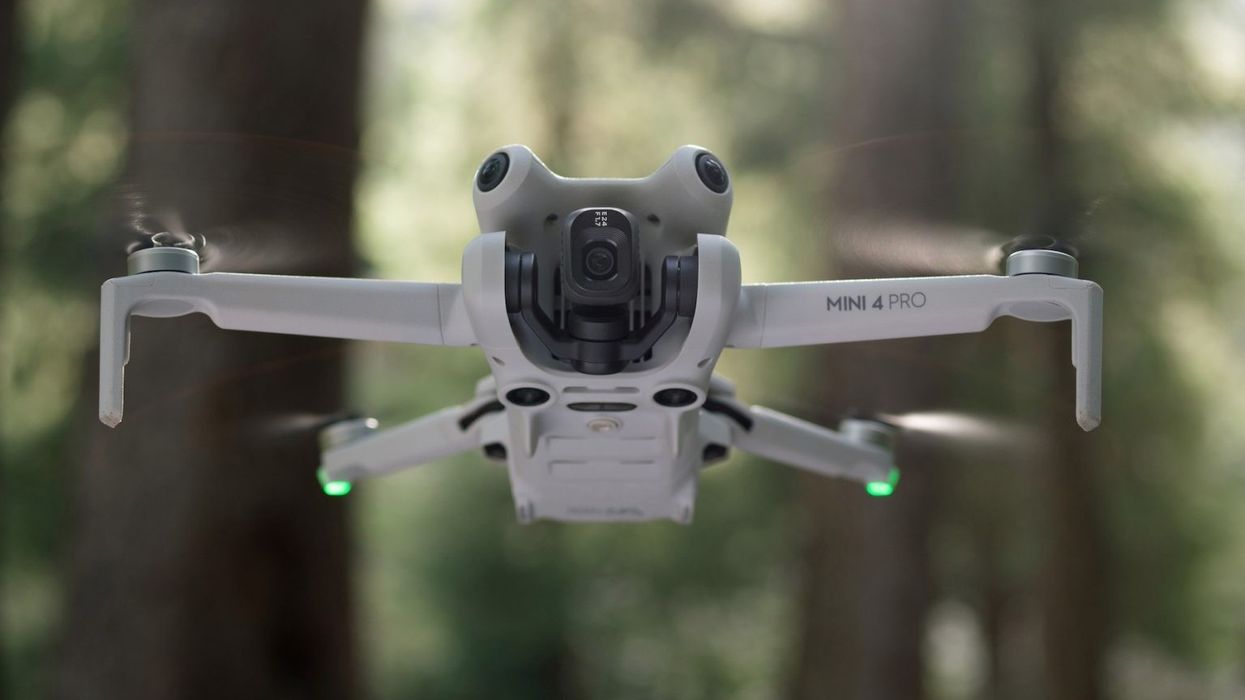Shoot 4K 100p With the New Super Lightweight DJI Mini 4 Pro
DJI’s entry-level drone gets a “Pro” level upgrade with better specs and more flyability.

The DJI Mini 4 Pro
Continuing a trend that we’re seeing across camera sectors in film and video, DJI is doubling down on its entry-level and prosumer models with the announcement of the DJI Mini 4 Pro, and the upgrade on the DJI Mini 3 Pro, the company’s current popular starter drone-camera selection.
Boasting new omnidirectional obstacle sensing and all around upgraded features both for beginners and more advanced flying shooters, the DJI Mini 4 Pro promises to still keep its super lightweight flyability, but with improved 4K video which can record up to 100p high-speed recording for those beautiful slow motion aerial shots.
Let’s take a look at the new DJI MIni 4 Pro and explore how it stacks up to its predecessor, and if it ultimately might be a good starter drone for you and your aerial videography needs.
Introducing the DJI Mini 4 Pro
Designed to be the “ultimate mini camera drone,” DJI has chosen to update its popular DJI Mini 3 Pro with a respectable amount of new specs and features. Yet, this isn’t a complete redesign.
The Mini 4 Pro will include the same sensor as its predecessor. But as a 48 megapixel CMOS sensor, plus combined with a new image-processing platform, it should get the most out of its 24mm-equivalent f/1.7 lens and its 82.1-degree field of view.
“The Mini 4 Pro perfectly marries professional-grade capabilities while keeping its hallmark lightweight design, offering unmatched freedom and adaptability. This drone emerges as the ultimate all-rounder, designed to elevate your creative toolkit.” — Ferdinand Wolf, Creative Director at DJI
So, the top spec for the Mini 4 Pro is going to be its 4K at 60p HDR video, plus some impressive slow-mo recording capability at 4K up to 100 fps as well. The Mini 4 Pro should also boast some enhanced noise reduction algorithm stats for its NIght Shots mode, as well as a True Vertical Shooting mode specially optimized for social media and smartphone video footage.
Lightweight and Under the Radar
Still, while the sensor and video stats should satisfy most online video needs, the real calling card for the DJI Mini 4 Pro (like its predecessor) is its super lightweight design and ease-of-use. Weighting in at just under 250 grams (8.8 ounces), the DJI Mini 4 Pro does not need to be registered to fly with the Federal Aviation Administration (FAA) in the United States since it’s 1g below the required weight threshold.
The DJI Mini 4 Pro also boasts some notable maneuverability improvements and safety features including upgraded omnidirectional obstacle sensing (and improvement over the Mini 3 Pro’s tri-directional sensing).
The Mini 4 Pro should also include updated obstruction detection from all directions now with its multiple wide-angle and downward-facing vision sensors.
With a flight time up to 34 minutes at launch (without extra accessories), which is pushable further with the Intelligent Battery Plus package, it should stay in the air about as long as its predecessor.

First look at the DJI Mini 4 Pro
Credit: DJI
Price and Availability
Overall, the DJI Mini 4 Pro isn’t a complete reinvention of the wheel here, but it’s a serviceable upgrade of a popular entry-level drone camera system that should be great for beginners or hobbyists looking for a new weekend pastime.
With its 4K video and slow-mo recording options, it shouldn’t be too hard to get your hands wet with some beautiful cinematic footage too as you hone your skills and perhaps upgrade to a higher-end drone camera system later.
The DJI Mini 4 Pro is available now with a base model costing $759 with options to upgrade the package for extra components and add-ons.
- DJI Mavic 3 Classic Helps Aerial Shooters Level Up Without Breaking the Bank ›
- The DJI Osmo Action 4 Brings a Bigger Sensor and Improved Low Light Video ›
- Tiny Drones Just Went Pro—Introducing the DJI Mini 3 Pro ›
- DJI Drones Are Sold Out, but Are New Ones Coming? ›
- DJI Launches its Most Affordable Drone Ever with DJI Mini 4K | No Film School ›

 "'Back Home"via Mercedes Arutro
"'Back Home"via Mercedes Arutro 'Back Home'via Mercedes Arutro
'Back Home'via Mercedes Arutro 









